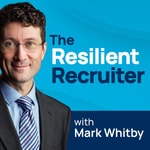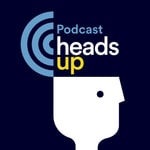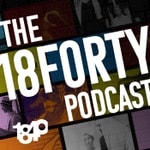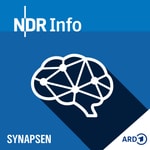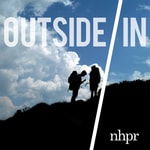BASICS Scotland Podcast – Details, episodes & analysis
Podcast details
Technical and general information from the podcast's RSS feed.
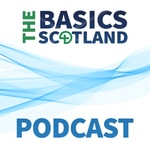
BASICS Scotland Podcast
BASICS Scotland
Frequency: 1 episode/6d. Total Eps: 83

Recent rankings
Latest chart positions across Apple Podcasts and Spotify rankings.
Apple Podcasts
🇬🇧 Great Britain - medicine
10/05/2025#82🇬🇧 Great Britain - medicine
02/04/2025#97🇬🇧 Great Britain - medicine
04/03/2025#56🇬🇧 Great Britain - medicine
09/02/2025#86🇬🇧 Great Britain - medicine
07/01/2025#88🇬🇧 Great Britain - medicine
06/01/2025#44🇬🇧 Great Britain - medicine
05/10/2024#93🇬🇧 Great Britain - medicine
03/10/2024#98🇬🇧 Great Britain - medicine
01/10/2024#72🇬🇧 Great Britain - medicine
13/09/2024#83
Spotify
No recent rankings available
Shared links between episodes and podcasts
Links found in episode descriptions and other podcasts that share them.
See all- https://www.ruok.org.au/
46 shares
- https://breathingspace.scot
19 shares
RSS feed quality and score
Technical evaluation of the podcast's RSS feed quality and structure.
See allScore global : 52%
Publication history
Monthly episode publishing history over the past years.
Johnny Will - Urgent Care
Episode 85
lundi 20 juin 2022 • Duration 30:43
Johnny chats us through the urgent care section of the ambulance service
Top 3 tips
- With Urgent Care Patients, take your time. Ask yourself "What does my patient need, where best can that be achieved, and in what timescale is it required".
- Follow the BRAN principles: consider and discuss with the patient the 'Benefits', 'Risks', 'Alternatives' and what likely happens if we do 'Nothing'.
- Phone a friend: Professional to Professional conversations enable better decision making, greater access to records, pathways and services and ultimately get patients to the Right Care.
Biography
Jonathon Will started his paramedic journey with London Ambulance Service before becoming the Lead Emergency Care Paramedic for Croydon University Hospital. After the loss of his wife aged just 39 (attributed to poor care in an overrun maternity unit and a strong driver for his passion to make NHS systems better), Jonathon returned home to Scotland and worked first as a Paramedic, then Specialist Paramedic, and Trainee Advanced Paramedic, before moving into the Clinical Directorate. Moving on, Jonathon is about to become an NHS National Improvement Adviser for the Scottish Government as part of the Redesign of Urgent Care program. He is also Tayside Mountain Rescue medical Officer, works with several events and expedition companies and is involved with teaching and assessing for SMR, WEMSI, MRT, UE, Wild Fitness and more. Jonathon is Co-Founder of the 'Healthiest Town' project and is also a Kick Boxing instructor and a single dad - as he puts it... a busy little human!
Bernd Wallner & Hermann Brugger - CPR with restricted patient access.
Episode 86
lundi 13 juin 2022 • Duration 37:37
Bernd and Hermann talk us through their research into performing CPR with restricted patient access.
Three top tips
1 - In an asphyxiated patient start ventilation as soon as possible
2 - In a situation of restricted patient access, don't think about standard CPR, start ventilation asap, even if in a really awkward or alternative position.
3 - Even minimal training makes a difference so regular training and practice of CPR is crucial and should be included in other training, such as avalanche training courses.
Biographies:
Hermann Brugger MD, born in Bruneck / Bolzano / Italy, December 30th, 1951; married to the painter Elfriede Gangl, 1978; children: Franz, Johanna. MD at the University Vienna, Austria, 1978; Medical assistant at the Hospital Sisters of Charity, Linz, Austria, 1979-1983. General Practitioner at the National Health Service, Bruneck, Italy, from 1983 to 2017.
Emergency physician for the Emergency Medical System and mountain rescue physician of the Mountain Rescue Organization of South Tyrol from 1983 to 2017. Eduard Wallnöfer Prize Tyrolean Industry, 1992; Georg Grabner Prize University Vienna, 1995; Research Award of the Wilderness Medical Society USA, 2012; Paul Auerbach Award Wilderness Medical Society USA, 2016. Member of the Board of the Italian Society of Mountain Medicine, 1999-2005; Member of the Board of the Medical Commission of the Union Internationale des Associations d’Alpinisme UIAA MEDCOM, 2001-2009; President of the International Commission for Mountain Emergency Medicine ICAR MEDCOM, 2001-2009; Member of the Board of the International Society of Mountain Medicine ISMM, from 1999; President of the International Society of Mountain Medicine ISMM, from 2016; Member of the International Commission for Mountain Emergency Medicine ICAR MEDCOM, from 1991; Associate Editor of High Altitude Medicine and Biology, from 2001; Guest lecturer University Padova, from 1999; Associate Professor and lecturer at the Innsbruck Medical University, from 2006; Founder and head of the EURAC Institute of Mountain Emergency Medicine at the European Academy Bolzano, Italy, from 2009. President of the International Society of Mountain Medicine ISMM, from 2016.
Around 60 book chapters, 280 publications (current cumulative IF [2020-10-27]: 869) in emergency medicine.
Mark Worrall - Seizures in the Paediatric Patient
Episode 74
lundi 11 avril 2022 • Duration 21:05
Mark chats us through seizures in the paediatric patient from febrile convulsions to status epilepticus
Top Tips:
- Follow your ABCDE
- Don’t ever forget glucose
- Buccal midazolam or if you are really stuck intranasal midazolam if you can't get it in the mouth and they have been seizing for more than 5 minutes
Biography:
Mark is a Paediatric Intensivist at Royal Hospital for Children in Glasgow, a consultant in Paediatric Critical Care Transport at ScotSTAR and a responder and Co -Director for pre-Hospital care for BASICS Scotland. His interests include the management of critically unwell children anywhere.
Mark Worrall - Paediatric Respiratory Emergencies part 2
Episode 82
lundi 4 avril 2022 • Duration 20:02
Mark chats us through commonly occurring respiratory disorders such as wheezing, asthma, breath stacking, pneumonia and COVID in the paediatric patient
Top Tips:
- Take your time and ask questions to try and work out where in the respiratory tract the problem is. A good history will aid this
- Keep it simple
- Try and keep the child and family calm
Resources:
Resuscitation council UK Paediatric basic life support guidelines
Paediatric basic life support Guidelines | Resuscitation Council UK
Biography:
Mark is a Paediatric Intensivist at Royal Hospital for Children in Glasgow, a consultant in Paediatric Critical Care Transport at ScotSTAR and a responder and Co-Director for pre-Hospital care for BASICS Scotland. His interests include the management of critically unwell children anywhere.
Mark Worrall - Paediatric Respiratory Emergencies part 1
Episode 81
mercredi 30 mars 2022 • Duration 22:49
Mark chats us through the commonly occurring respiratory disorders of choking, epiglottitis, croup and bronchiolitis.
Top Tips:
- Take your time and ask questions to try and work out where in the respiratory tract the problem is. A good history will aid this
- Keep it simple
- Try and keep the child and family calm
Resources:
Resuscitation council UK Paediatric basic life support guidelines
Paediatric basic life support Guidelines | Resuscitation Council UK
Biography:
Mark is a Paediatric Intensivist at Royal Hospital for Children in Glasgow, a consultant in Paediatric Critical Care Transport at ScotSTAR and a responder and Co-Director for pre-Hospital care for BASICS Scotland. His interests include the management of critically unwell children anywhere.
Mark Worrall - Anaphylaxis in the paediatric child
Episode 78
lundi 21 mars 2022 • Duration 19:26
Introduction:
Mark chats us through anaphylaxis in children and how we can treat them
3 Top Tips:
- When you are assessing a child, think could this be anaphylaxis in your differential
- Always look up the dose
- Hydrocortisone and chlorophenamine are not now initial satges of children in anaphylaxis
Resources:
Resuscitation council Guidance for healthcare proifessionals : anaphylaxis
Biography:
Mark is a Paediatric Intensivist at Royal Hospital for Children in Glasgow, a consultant in Paediatric Critical Care Transport at ScotSTAR and a responder and Co -Director for pre-Hospital care for BASICS Scotland. His interests include the management of critically unwell children anywhere.
Caitlin Wilson - Hyperventilation Syndrome
Episode 75
lundi 14 mars 2022 • Duration 30:26
Caitlin Chats us through hyperventilation syndrome, classically referred to as “panic attack” and how we can spot it and treat the syndrome
Top 3 tips:
- Keep an open mind – Hyperventilation Syndrome (HVS) is a diagnosis of exclusion!
- Use your diagnostic tools & clinical judgement - Don’t guess what findings might be!
- Be cautious when diagnosing HVS in older patients or when you’re uncertain in HVS being the sole diagnosis + safety net the patient when considering non-conveyance!
Biography:
Caitlin Wilson is a paramedic for North West Ambulance Service NHS Trust and conducted a research study on Hyperventilation Syndrome (HVS) as part of her MSc Clinical Research Methods in 2015/16. Caitlin went on to publish findings from her research and was involved in updating the JRCALC guidelines for HVS. Currently, Caitlin is undertaking a PhD in prehospital feedback at the University of Leeds funded by the NIHR Yorkshire and Humber Patient Safety Translational Research Centre.
Links and resources:
Wilson, C., Harley, C., & Steels, S. (2020). How accurate is the prehospital diagnosis of hyperventilation syndrome?. Journal of Paramedic Practice, 12(11). doi:10.12968/jpar.2020.12.11.445
Wilson, C. (2018). Hyperventilation syndrome: diagnosis and reassurance. Journal of Paramedic Practice, 10(9), 370-375. doi:10.12968/jpar.2018.10.9.370
Wilson, C., Harley, C., & Steels, S. (2018). Systematic review and meta-analysis of pre-hospital diagnostic accuracy studies. Emergency Medicine Journal, 35(12), 757-764. doi:10.1136/emermed-2018-207588
Gail Topping - Are you OK?
Episode 76
lundi 7 mars 2022 • Duration 27:48
Top 3 tips
- Put your own oxygen mask on first. Take the time to look after yourself first - you can’t help anyone else if you’re running on empty. Even if it’s just 5 mins for a cuppa and a chance to unwind, take that time.
- Don’t be afraid to talk about mental health. If you’re concerned about someone else, ask them if they’re okay, but make sure to ask them twice because most people’s first response will be something like “I’m fine, just tired”.
- Always be kind. None of us know what anyone else is coping with, either at work or in their personal life. We could all benefit from people being kinder to each other. It could be the little bit of light in someone’s day that helps them keep going.
Resources
https://www.mind.org.uk/news-campaigns/campaigns/blue-light-programme/
https://royalfoundation.com/mental-health/
https://drdavidhamilton.com/the-5-side-effects-of-kindness/
Books
The Mental Health And Wellbeing Of Healthcare Practitioners - Esther Murray and Jo Brown (includes a chapter on our campaign)
The Little Book Of Kindness - Dr David Hamilton
Biography
I've worked in the SAS for over 22 years, initially in ACC before moving to operational duties and I've been based in West Lothian ever since. My mental health has been negatively affected by some harrowing incidents I have responded to and I became frustrated by the lack of support sometimes being offered afterwards, so Ruth Anderson and I developed a campaign for informal peer support. It was called “R U OK?”, based on the Australian mental health charity, and I hope it helped promote conversations about mental health and well-being within the SAS.
Dave Strachan - Suspension Trauma
Episode 79
lundi 28 février 2022 • Duration 26:42
Our own Dave Strachan become the interviewee and discusses suspension trauma
Top 3 tips
1 Suspension trauma happens quickly so be aware!
2 We, the rescuers, are potentially the cause of some of this so in an MRT or technical rescue think about patient position and getting patients to move their limbs where possible
3 Look at the data! Understanding of this condition is changing rapidly as more research is carried out.
Resources and links
https://www.wemjournal.org/action/showPdf?pii=S1080-6032%2820%2930070-3
https://www.wemjournal.org/action/showPdf?pii=S1080-6032%2819%2930164-4
https://www.ncbi.nlm.nih.gov/pmc/articles/PMC7346344/pdf/cureus-0012-00000008514.pdf
https://www.ncbi.nlm.nih.gov/pmc/articles/PMC6602116/pdf/ham.2018.0089.pdf
https://www.ncbi.nlm.nih.gov/pmc/articles/PMC2658225/pdf/237.pdf
Biography:
Dave started working in pre hospital care in 2006 as an event medic and member of Tayside Mountain Rescue. When he finally graduated from Dundee in 2014 he had spent just enough of the intervening years not having fun in the hills to actually qualify as a Doctor. Currently a Captain in Royal Army Medical Corps, he now holds diplomas in Leadership, the Management of Conflict and Catastrophe and Immediate Medical Care. He has climbed and led expeditions on 5 continents and spent most of the past few years deployed on operational tours and military exercises around the world.
At home in Pitlochry, Dave can be found responding for BASICS, playing ‘hide and seek’ with the rescue team or running (slowly) around the hills looking for things to climb.
April Lochhead - Falls in the community
Episode 77
lundi 21 février 2022 • Duration 28:56
April talks us through falls in the community, how we can treat and refer these patients ensuring the right care at the time in the right place
Top 3 tips:
- Always establish a patient's baseline and compare this to their presenting complaint for realistic assessment
- Consider potential detrimental impacts to patients with an unnecessary ED admission
- Engage with local falls pathways and use Prof to Prof links.
Biography:
April has 31 years of clinical background in NHS Scotland. April is a a trained Occupational Therapist and has worked in a variety of areas. Starting off in mental health then in-patients, stroke and care of the elderly and laterally her career has been in the evolution of discharge teams to community care and then with Health and Social care partnership Greater Glasgow and Clyde.
Her interest in frontline services started with a specialist role in trauma orthpaedics , addressing supported discharge and admission avoidance. This work developed into A&E patient assessment, intermediate care and projects with the Scottish Ambulance Service.
April is presently with The Scottish Ambulance Service on a 2 year secondment and believes that she is the first Occupational Therapist within the service. It is her hope to establish a sustainable model to support patients and crews to utilise and embrace all components of health and social care that can provide best outcomes to patients who present to the ambulance teams with falls and frailty.
April is passionate about patients having the right care at the right place with informed choice, and embracing new and innovative options and models of practice.



